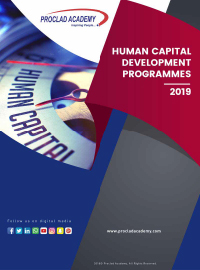Gas Processing & Gas Conditioning
| Ref No. | Dates | Venue | Fee (US$) | |
|---|---|---|---|---|
| OG 002 | 19 - 23 Jan 2020 | Dubai | 4500 | Register |
| OG 002 | 14 - 18 Jun 2020 | Dubai | 4500 | Register |
| OG 002 | 25 - 29 Oct 2020 | Dubai | 4500 | Register |
Gas Processing & Gas Conditioning
Introduction
Since its discovery, natural gas has become an indispensable fuel source throughout the world. Natural gas used by consumers is much different from the natural gas that is extracted from underground up to the wellhead. Gas processing and conditioning separates contaminants to make it suitable for use. The process and equipment varies widely depending on the desired specification and applications of gas. The knowledge on handling issues in gas processing and conditioning will determine the productivity, safety and profitability.
PROCLAD Academy’s Gas Processing & Gas Conditioning training course will cover the major technical aspects. This training course will provide participants with the knowledge and tools to determine the main properties of natural gas, separation, dehydration, sweetening, measuring and transportation. Emphasis on the plant and equipment design and operation will be addressed that will allow participants to identify key variables. All of this will result in an increase of the effectiveness of the personnel, reduction of operation costs, and optimization of the performance of gas processing and conditioning.
The key features of PROCLAD Academy’s Gas Processing & Gas Conditioning training course are:
- Assess various problems induced by unwanted elements in natural gas streams
- Master gas treatment processes, operations and related operating conditions
- Perform calculations for summary design of main gas processing equipment
- Ascertain operating problems in gas processing & conditioning, and related solutions
- Simulate natural gas treatment processes
Learning Objectives
Attendees on PROCLAD Academy’s Gas Processing & Gas Conditioning training course will learn:
- About the selection and evaluation of processes used to dehydrate natural gas, meet hydrocarbon dewpoint specifications and extract NGLs
- Application of gas engineering and technology in facilities and gas plants
- Important specifications for gas, NGL and condensate
- How to apply physical/thermodynamic property correlations and principles to the operation, design and evaluation of gas processing and conditioning facilities
- Practical equipment sizing methods for major process equipment
- To evaluate technical validity of discussions related to gas processing and conditioning
- To recognize and develop solutions to example operating problems and control issues in gas processing and conditioning facilities
Target Audience
PROCLAD Academy’s Gas Processing & Gas Conditioning training course is ideal for:
- Gas processing engineers
- Production and processing personnel involved with natural gas
- Facilities engineers, field supervisors and engineers
- Surface facilities design engineers
- Surface facilities operations engineers
- Gas plant managers and supervisors
- Anyone interested in a solid technical understanding of the principles of an LNG plant
Training Methodology
PROCLAD Academy’s Gas Processing & Gas Conditioning training course incorporates inspiring lectures with structured lessons from the learning manual along with comprehensive workshops & case studies; captivating PowerPoint slides to enhance learning; ongoing discussions with action planning; ample time for Q&A; training activities to reinforce key concepts within a fun learning environment.
Course Outline
- Natural gas properties
- Physical and chemical natural gas properties
- Gas quality and sell specification
- Ideal and real gas
- Equations of state
- Multicomponent systems
- Water-hydrocarbon behavior
- Effects of contaminants on NG properties
- Hydrates
- Deposition mechanism, control and remediation
- Gas separation
- Principles, types, multistage processes, and condensate stabilisation
- Two and three phase separators
- Design and operations criteria
- Horizontal, vertical, internals, troubleshooting
- Process classification
- Absorption, adsorption, direct conversion, and membranes
- Design and operation parameters and criteria
- Amine plant general design criteria and procedures
- Typical operation problems and troubleshooting
- Process classification
- Theory and principles
- Expansion refrigeration, and membranes
- Glycols vs solid desiccants
- Key operating parameters
- Common operation problems and possible solutions
- Gas measurements
- Transportation systems
- Field usage and end-use
- New developments and emerging technology
- Commercial issues
- Technological challenges for natural gas


